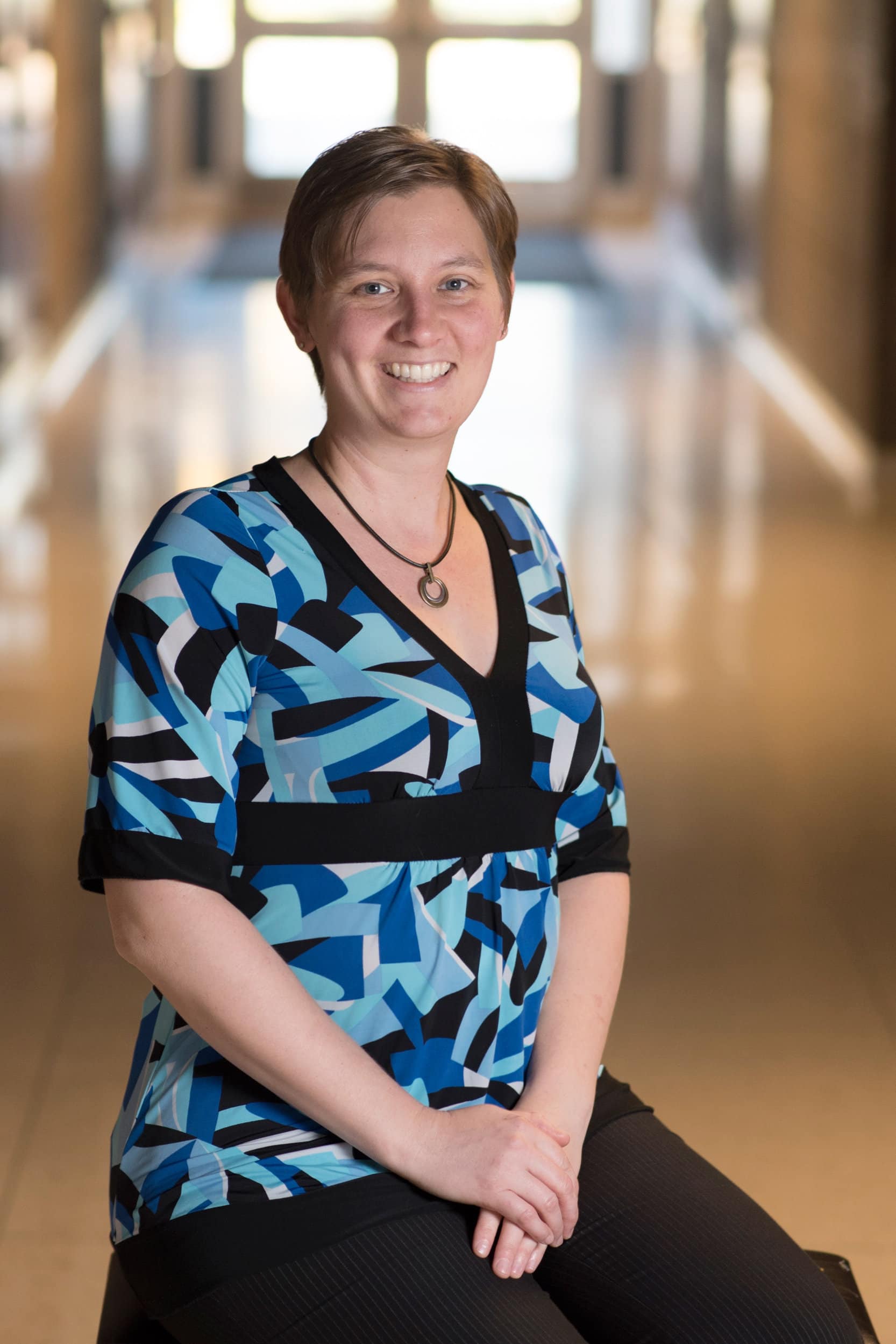September is National Senior Center Month! Senior Centers play a huge role in our communities. They offer a safe place for older adults to socialize, grab lunch, and enjoy a variety of activities. Most senior centers also act as one of the main ways that older adults learn about other community services and programs. We recently sat down with Mackenzie Pfeiffer, Senior Services Coordinator at the Chelsea Senior Center, to learn about the services that the Chelsea Senior Center offers the community, her tips for caregivers and their loved ones, and what to expect when you call the office.
Ahead of the Curve: If you had to give an “elevator speech” about what your organization does, how would you describe it?
Mackenzie Pfeiffer: The Chelsea Senior Center provides numerous activities and resources to Western Washtenaw County and surrounding communities. We offer onsite programs to address physical, emotional, creative, financial, and social wellness. These include exercise classes such as Enhance Fitness, yoga, pickleball, and line dancing. Some games include cards, Mah Jongg, and pool. There are also classes offered to help with technology needs, estate planning, fall prevention, driver safety, memory loss and caregiver support. We also serve onsite meals daily and provide Meals on Wheels to homebound older adults in Chelsea and Manchester.
Chelsea Community Senior Services (C2S2) provides services and referrals beyond the walls of the Chelsea Senior Center to help older adults age in their community. We work with local agencies and businesses to connect older adults to volunteers, businesses, and service providers as needed. Through this program, we have helped thousands with taxes, insurance, home modifications, and transportation needs. The Chelsea Senior Center received a grant to kick off the Rural Older Adults in Motion (ROAM) program which has helped individuals with rides, delivered goods to seniors, and reduced isolation.
AOTC: Walk me through the step-by-step process. What happens when you get a phone call/referral?
MP: When I get a phone call, I collect some basic information about the individual if they are not already a member. We have a short chat about the services they are looking for and what we are able to provide, then I send them a written copy of options via email or printed list. I will follow up to see if there is anything else they need and to make sure the experience was positive.
AOTC: What organizations do you work closely with?
MP: The Chelsea Senior Center works closely with local businesses, agencies, and local governments. We make several referrals to Faith in Action, the Western-Washtenaw Area Value Express (WAVE) Bus, Catholic Charities Washtenaw County, Jewish Family Services, Legal Services of South Central Michigan, Veterans Affairs of Washtenaw County, and Area Agency on Aging 1B. We also work with the Manchester Resource Center, Stockbridge Outreach, Dexter Senior Center, and Grass Lake Senior Center to provide support.
AOTC: What are some things you wish the public knew about your role?
MP: I wish the public would know that I consider myself lucky to work for an agency that allows me to treat my clients like family rather than as a number to be processed! I care about the older adults who show up in my office as well as the family members who call for help. I try to help my clients maintain dignity and independence through their aging process and have been with them through life, illness, and even the dying process.
AOTC: What tips do you have for someone with a loved one that’s going through this issue/needs assistance?
MP: My tips would be as follows:
- Start having conversations about your plans for the future now rather than waiting. Discuss changes over the years as health may change and new life situations may arise and should be addressed.
- Don’t try to hide your situation because there are probably a dozen more people you know who have experienced it and may be able to offer assistance.
- Instead of isolating yourself, you can turn to one of many great local agencies for help.
AOTC: Is there anything you would like to add?
MP: The Chelsea Senior Center is a very welcoming place and is open to everyone. While membership costs $25 per year, we do offer scholarships. We have been deliberate in addressing needs to reduce isolation and assisting older adults which helps us age within the community. Our intergenerational programs provide a bridge to connect younger and older generations in which everyone benefits. We are thankful for all of the support from our community businesses, agencies, members, and especially our amazing volunteers.
Thank you so much to Mackenzie for sharing information about this valuable community resource! To learn more about the Chelsea Senior Center, visit their website or call the office at (734) 475-9242.
Visit the Ahead of the Curve Resource Directory for information about senior centers in your area.






